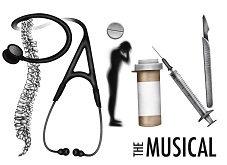Evolutionary, pain is not meant to be just turned off, yet that remains the primary focus of modern medicine. Instead, we need to help patients access their ability to become more resilient where resilience is described as the ability to overcome physical and mental adversity.
From chronic pain to auto-immune disorders, all illnesses are perceived by the person as their body attacking itself and hence they often do their best to dissociate themselves from their body. They see their body as a source of discomfort and suffering.
Acute pain is vital for survival therefore useful, however chronic pain is typically not useful where instead of being self-protective, it becomes self-destructive.
Despite the high prevalence, there is still little is known about the mechanisms responsible for the transition from acute to chronic pain. However, what we do know so far are the top 5 risk factors contributing to chronification of pain (Clark et al 2017, Hecke et al 2013)
#5. Genetic predisposition (Which we can do nothing about)
#4. Older age (Which again we can do nothing about)
#3. Being female (Again, outside of our control)
#2. Previous pain experience (Regrettably, the past cannot be changed)
And the #1 risk factor for the chronification of pain is…
Attitudes toward pain
(And this is the ONLY risk factor that we have a chance of positively influencing)

The primary intention of PAIN: The Musical is to positively change peoples’ instinctively negative attitudes towards pain. If PAIN was not approached with resentment, hostility and fear but with respect, compassion and understanding, perhaps we could see a significant drop in future prevalence of chronic pain.
This is the LINK to what people had to say about the premier public reading of the show that was performed 2 weeks ago in Toronto. I hope one day you will also see it live in theatre.

